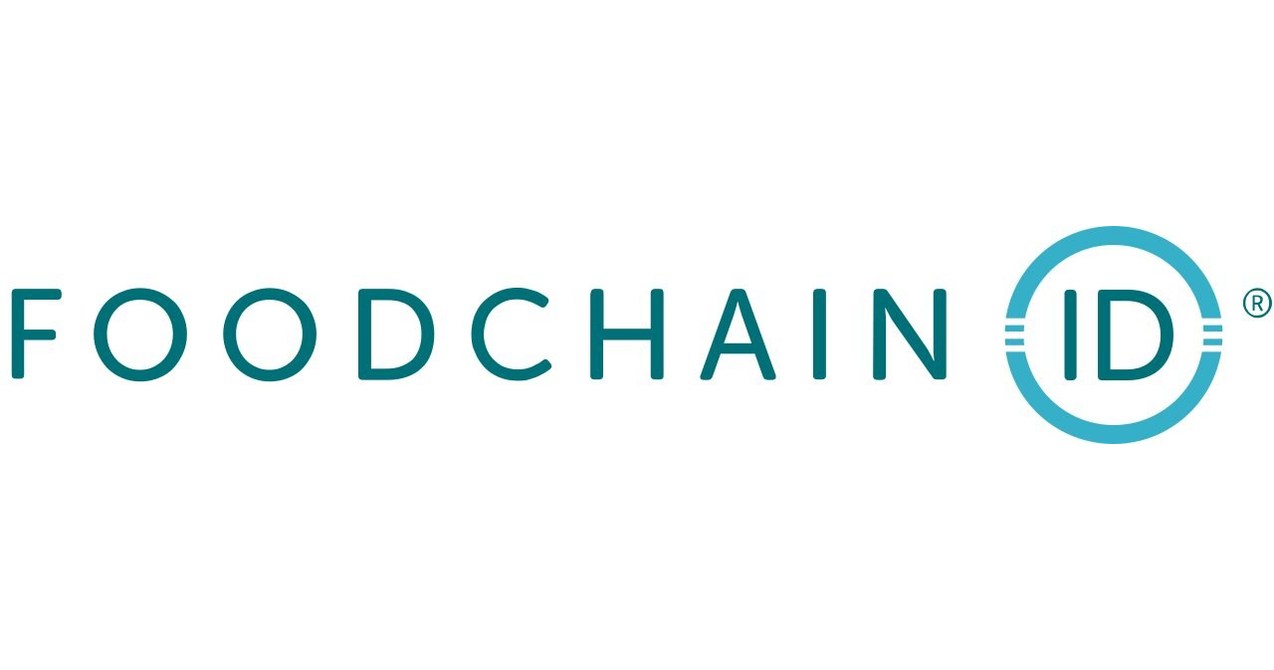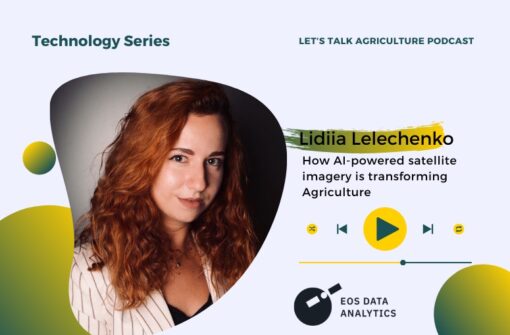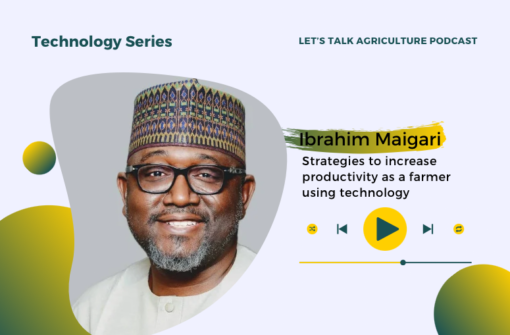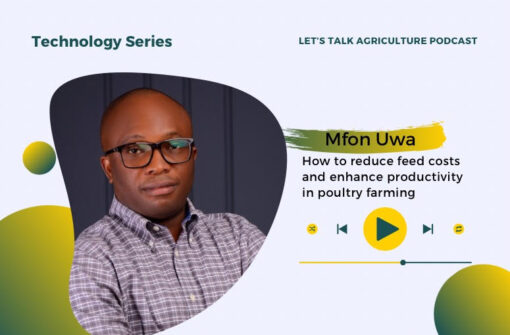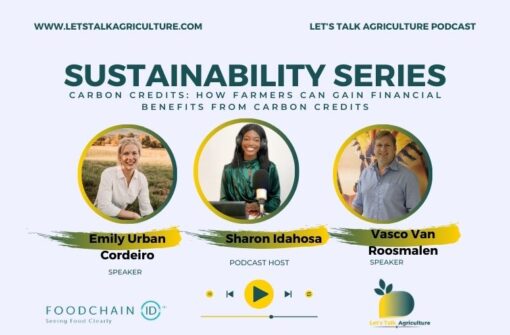What are the benefits of Carbon Credits for farmers in Africa?
Transcription
[00:00:00] Intro
[00:00:42] Sharon Idahosa: Do you know that it can actually get a whole lot easier keeping the food supply chain safe and transparent? Join over 30, 000 food, beverage, ingredient, dietary and supplement companies across global supply chain for integrated food safety, quality and sustainability services. For more information, do go to visit foodchainid.com.
[00:01:03] Sharon Idahosa: And now, welcome to the Let’s Talk Agriculture podcast show. This is our final episode of the Sustainability Series, and I’m excited to bring today’s episode your way, where we’re going to be looking at carbon credits, how farmers can, you know, gain financial benefits through carbon credits, and even put a premium for their product.
[00:01:23] Sharon Idahosa: So join me welcome our guests for today, from two different organizations working hand in hand to ensure that farmers get the best, I mean, what they deserve across Africa and beyond. Welcome, Emily. Welcome, Vasco. Thank you so much for joining the Let’s Talk Agriculture podcast show.
[00:01:41] Sharon Idahosa: How are you doing today?
[00:01:42] Emily Urban Cordeiro: Good, good. Thank you so much for having us.
[00:01:45] Vasco Van Roosmalen: Doing well, thank you. And again, yes, thank you so much for having us. It’s a pleasure to be here.
[00:01:49] Sharon Idahosa: It’s always a pleasure speaking with industry experts. I mean, I’ve been doing this for over three years now and interacting with industry experts also helps me to widen my horizons as well.
[00:02:00] Sharon Idahosa: So I really want to appreciate you coming on the show and sharing your knowledge with me and my audience as well. So once again, Thank you.
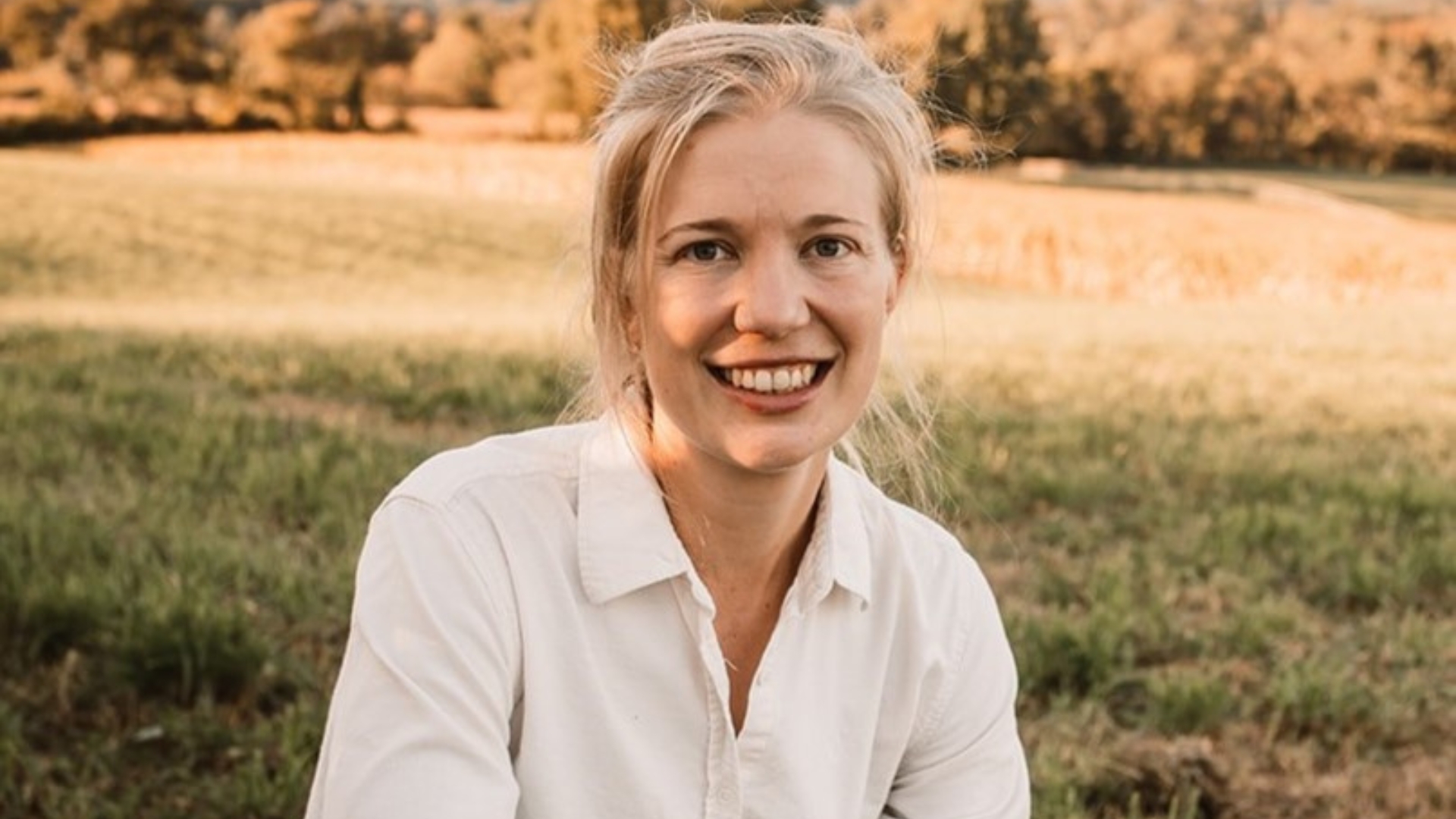
Emily Urban Cordeiro from FoodChainId
[00:02:08] Emily Urban Cordeiro: Sure. You’re very welcome. Looking forward to the conversation.
[00:02:10] Sharon Idahosa: Sure. So, yes, let’s start with you now.So, in simple and clear terms, what is carbon credit all about? You know, how is FoodchainId involved in the voluntary market as a private entity?
[00:02:25] Sharon Idahosa: Let me just know, get more idea about what carbon credit is all about. That’s what we’ve been hearing for so long now. So maybe this is a good avenue to learn more about it. It’s simple terms that
[00:02:35] Emily Urban Cordeiro: yes. And actually, you know, when we think about carbon credits and what this actually means in the context of smallholders for various market players.
[00:02:46] Emily Urban Cordeiro: It is actually complex to think about, you know, Vasco at ReSeed, you know, he’ll, he’ll explain in great, great detail, of course, how it works from their perspective. And, and I want to, I want to just zoom out for a moment and share how, how carbon credit. It is a way to essentially meet climate goals and on this conversation, we’re talking about nature forestry systems, but essentially leverage the, the natural ecosystems that we have to meet our climate goals, um, globally.
[00:03:21] Emily Urban Cordeiro: And then really we’ll go into great detail about how this trickles down into the farmers and how the farmers themselves are the core to this, the solution and nature based. They now have all the stakeholders and this is working across geographies, across cropping systems, across cropping system types, farm sizes, various farm sizes, and we are a certification verification body.
[00:03:49] Emily Urban Cordeiro: I mean, I’m. What this means in current credit is that we, our third party, ensures that all credit yields and claims are in fact according to the [00:04:00] standards and protocol that they were, were, you know, generated from. So that’s a little bit of a, a little bit of a background there.
[00:04:07] Sharon Idahosa: Thank you for sharing. So maybe Vasco, you want to share your own perspectives.
[00:04:11] Sharon Idahosa: I mean, I’m sure everybody has like a different explanation, so maybe you want to give a little bit of an introduction on carbon credits as well.
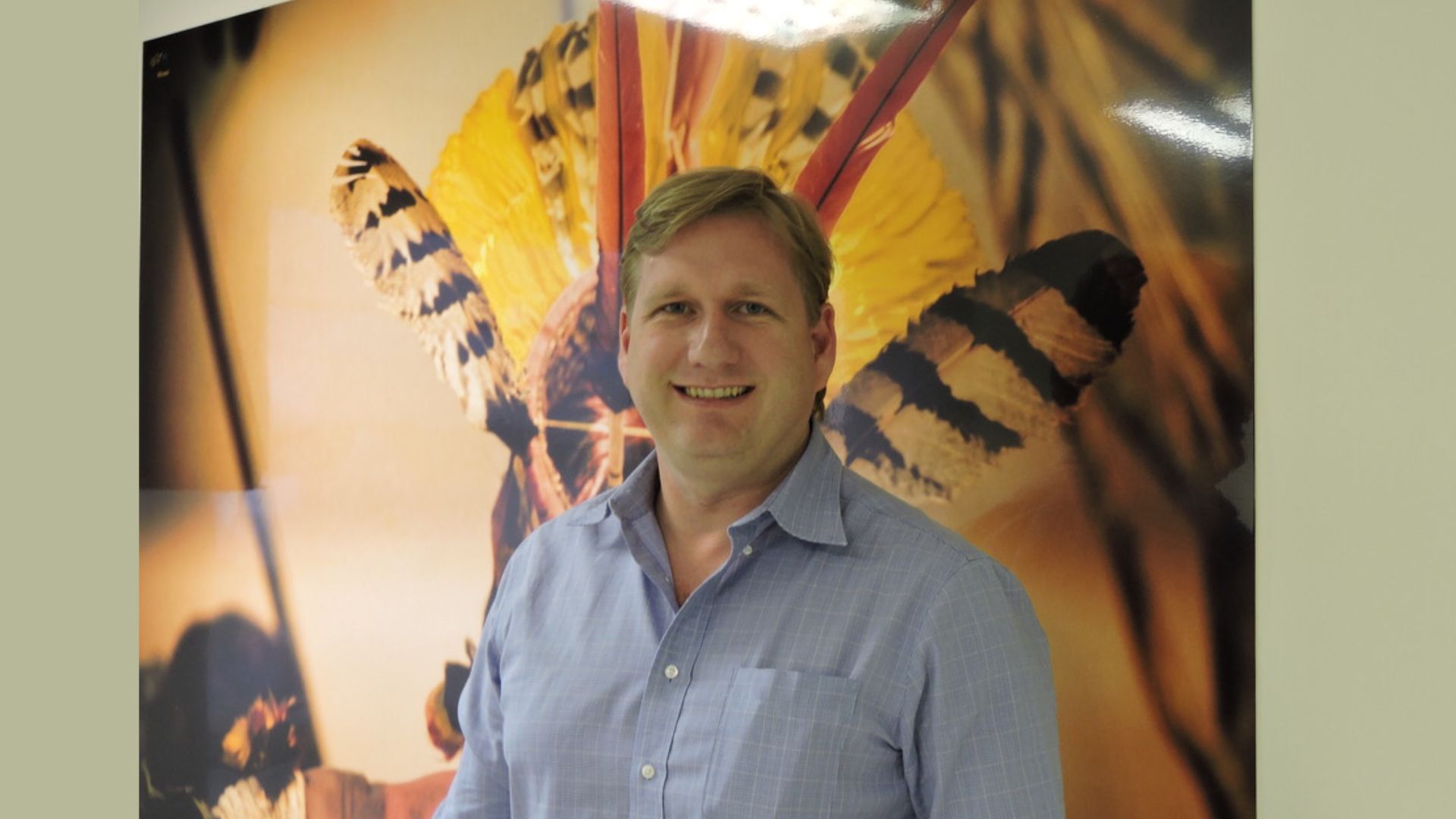
Vasco Van Roosmalen from ReSeed
[00:04:20] Vasco Van Roosmalen: Yes, thank you, and Emily, that was really good. Um, on our side, um, we always say that the objective here are not the carbon credits themselves. Carbon credits are a tool that were developed to help drive climate finance, to help Uh, parts of our economy decarbonize or reduce their emissions.
[00:04:38] Vasco Van Roosmalen: Uh, and so the idea is that you’re able to quantify, uh, current emissions within those economic sectors, let’s say agriculture or transport, for example, and then you can quantify and you can direct. Actions that people are taking that are helping, uh, to reduce those emissions and direct finance to those who need that additional support to reduce their emissions.
[00:05:00] Vasco Van Roosmalen: And so that’s also why Reseed was founded because when we look at the carbon markets of the last 20 years Uh, the university of Berkeley found that fewer than or less than one percent of all carbon credits generated up until now Have actually come from the agricultural space. And that means that we haven’t been able to use this mechanism to drive finance to help farmers both to maintain their carbon stocks and to maintain their actions that are driving the sequestration and removal of carbon, as well as helping them finance what they need to do
[00:05:32] Vasco Van Roosmalen: to reduce their emissions. And so that is why we found that receipt to really focus on building that bridge and helping farmers access the financing that they need so that they can stay on their lands. They can maintain their regenerative and organic practices and maintain their their activities as well.
[00:05:51] Vasco Van Roosmalen: Was drive additional finance that’s necessary, uh, to help them decarbonize.
[00:05:55] Sharon Idahosa: Thank you for sharing. Thank you for sharing. So I got an insight into a case study where both your organizations are collaborating to supplement, um, Brazilian across, um, cocoa farming. I mean, trying to help the Brazilian cocoa farmers
[00:06:11] Sharon Idahosa: with your income through carbon credits. So do you mind elaborating more on this? What role did your organizations play to support this project? Let’s hear from you Vasco, please.
[00:06:21] Vasco Van Roosmalen: Thank you, Sharon. So yes, so both ReSeed and FoodchainID started a partnership with a Brazilian chocolate company that’s called Dengo that has a really high level of involvement in supporting their cocoa producers.
[00:06:36] Vasco Van Roosmalen: Uh, to help them measure and also drive again, climate finance, carbon finance to support these farmers, most of whom are smallholder farmers. So when we looked at, at what was going on in the supply chain, over 75 percent of, uh, the farmers in these cacao supply chains of this in the chocolate industry, they are smallholder farmers, and the vast majority of them live on less than a living income.
[00:07:01] Vasco Van Roosmalen: And yet, when you’re looking also, uh, as in many other countries, many of these farmers actually farm in a way that they’re protecting forests. Uh, so in Bahia, you have, uh, In Brazil, uh, the farmers are the response. The cocoa farmers are responsible for maintaining the last remnants of the Atlantic forest in that region of Brazil as they plant the cacao trees under the shade of the larger tree.
[00:07:23] Vasco Van Roosmalen: And this way of working this way of growing and making the forest productive while protecting the forest is something that is a really beneficial to all of us as we are looking to reduce deforestation. And so we want to be able to recognize that. And so, ReSeed and foodChainID have worked together and currently we we are working with the farmers in that region to be able to recognize the fact that they are protecting this forest as well as helping them increase the amount of Um, of additional carbon that they can draw down both by improving the soils and that’s what’s [00:08:00] one of the identified needs by the farmers themselves is how do we increase our yields?
[00:08:05] Vasco Van Roosmalen: How do we increase the product? Our productivity of our soils and the health of our souls? And that is a key factor. And that’s where, where Dr. Emily is actually, uh, the expert. And so that way we are able to drive finance to these farmers. And at this point, we are able to increase these farmers income between 30 and 50 percent from their current incomes based on bringing in this carbon.
[00:08:29] Vasco Van Roosmalen: Finance, which recognizes their protection activities of their carbon stocks and their shoals and forests, as well as supporting them with those additional action. And that’s been a key point. And as, as we know, in the cacao sector, uh, over this, uh, the last few months, there’s been a tremendous upheaval, right?
[00:08:47] Vasco Van Roosmalen: With less supply, uh, prices have gone, uh, to record highs. And there is this. Definitely this instability in the supply, and we need this additional investment to those people who actually are sustaining our entire chocolate industry, which are in the vast majority are smallholder farmers, both in West Africa and in Africa, as well as in countries like Brazil.
[00:09:09] Vasco Van Roosmalen: And, uh, and they share the same, the same challenges, but also when we can build that bridge to help them access climate finance, then it’s absolutely our responsibility as a world and also for the chocolate companies themselves to help bring that finance back to these farmers. So that they can stay on their lands.
[00:09:28] Vasco Van Roosmalen: They can maintain their practices. They can become more resilient to climate change. So, that is what this project is all about.
[00:09:35] Sharon Idahosa: Thank you for sharing. So, Emily, do you have something to add to this before I quickly switch to something that I came across on LinkedIn just a few days ago?
[00:09:45] Emily Urban Cordeiro: Sure, yeah. I’d like to add a little bit more to that.
[00:09:48] Emily Urban Cordeiro: You know, Vasco really spoke to the incredible opportunities this type of project has on those farmers livelihoods, as well as the biodiversity, um, the soil health, all of these aspects. You know, one thing when we think about carbon markets is, is ultimately someone is paying for these benefits. And it’s really important that there’s full transparency and trust.
[00:10:12] Emily Urban Cordeiro: And so, Where FoodChainId comes in, for example, is is in the validation verification. We we look and see are all the activities farmer eligibility, all the activities that are implemented by our partners on the ground by farmers. Is that within lines of the standard? Receipt standard and methodologies. And in that way, we can really create that trust and transparency.
[00:10:37] Emily Urban Cordeiro: And I think that’s, you know, that’s a really important aspect of all of this is to have multiple entities so that we can truly, you know, we can truly back up all of these, you know, incredible, incredible activities that, you know, are being generated from this. So anyway, I wanted to add that piece in.
[00:10:55] Sharon Idahosa: Thank you for adding that. So before I tried, I’m sure that you must have encountered some sort of challenges while working with the farmers in Brazil. But then again, before maybe you answer that, I was going through LinkedIn and I came across a report or something where the prices of, of, um, cocoa has gone very high, mainly because of, um, some widespread disease in, in Ghana and Ivory Coast.
[00:11:26] Sharon Idahosa: So I just wanted to, um, get your, your thoughts on that to see what can actually be done to, to help, um, the cocoa farmers in that region. It is something that, um, Carbon Credit can actually fix. I mean, it’s, it’s really, um, disturbing because the price of chocolate, I mean, chocolate of all, of all, of all stuff is really expensive.
[00:11:50] Sharon Idahosa: It’s going to be expensive because the demand now for, um, cocoa is going to be so super high. So I’m just trying to get, pick [00:12:00] your brains on this particular issue. Anything to add on this?
[00:12:05] Vasco Van Roosmalen: I can start definitely. So, yes, that’s exactly what we identified in our work is that, uh, the, the cacao sector is currently dependent on, uh, farmers who are smallholder farmers who are highly vulnerable, uh, both because of their socioeconomic conditions, their income conditions, which lower living income, as well as being very much exposed to the impacts of climate change and they also, uh, which can also exacerbate these types of plagues, right?
[00:12:32] Vasco Van Roosmalen: So in Brazil, they faced the same thing. It’s a called witch’s broom since the 1990s, which really impacted the cacao sector of these farmers. And yes, we, if we consider that these are the, these farmers are protecting and through their activities are actively managing carbon stocks and forest and and soils that are currently avoiding emissions by keeping those and managing and protecting those stocks as well as having the potential to draw down even more carbon than We should absolutely drive climate finance to help these smallholder farmers, these vulnerable farmers to stay on their land, to eat, to reduce their vulnerabilities, both in terms of income generation, but also their vulnerabilities to the impact of climate change.
[00:13:23] Vasco Van Roosmalen: And so, yes. Uh, it is absolutely necessary, and that’s why it’s so important that we build those bridges, because right now, the way, uh, the climate finance has been set up is that it hasn’t been able to, uh, generate that, uh, or recognize those, those ecosystem services by these farmers, and in that way, they haven’t been able to access, uh, or have their, these, these actions recognized, and in that way drive finance so that we can help them stay on their land and maintain what they’re doing and even expanding what they’re doing.
[00:13:55] Sharon Idahosa: Thank you for your contribution. So, um, is this also part of the challenges that the, that you encountered while working with the farmers in Brazil? Well, if you can still add more to, to it, to know, um, the challenges that we face, how we’re able to overcome some of these challenges in the regions where both companies worked.
[00:14:15] Vasco Van Roosmalen: It’s definitely, and Emily, please come in. But yeah, the, the challenges here, are tremendous because you are talking about smallholder farmers who are producing the bulk of the cacao that we transform into chocolate. Uh, but yet they’re mostly off grid, right? They’re not mapped. Oftentimes they’re, they’re, we don’t even know the limits of their properties.
[00:14:38] Vasco Van Roosmalen: They don’t necessarily have access to the information or Uh, able to be heard within that supply chain. Um, and that those challenges, including for example, just the documentation about their land titles, which oftentimes is missing. So in Brazil, for example, at least 50 percent of the farmers, uh, didn’t have their land documentation in order to be able to be recognized even for their carbon services, but also for other requirements that the market is now requiring, such as the European regulation on no before station.
[00:15:10] Vasco Van Roosmalen: Uh, supply source, which is coming online, uh, which means that any product coming into the, into the European Union, um, such as cacao, uh, will need to prove that it didn’t come from an area that was deforested and smallholder farmers being off grid don’t necessarily have access to that information. And for that, I’m definitely going to pass over to Emily.
[00:15:30] Vasco Van Roosmalen: Who is working directly with FoodChainId to solve that.
[00:15:33] Emily Urban Cordeiro: Yes. And you know what? From, uh, from, uh, I’ll jump in and say, you know, from my perspective as a cropping systems, agronomist, soil scientists, we think a lot about agricultural systems as in fact a system. So when we’re looking at at challenges that come up and pressures on cropping system.
[00:15:52] Emily Urban Cordeiro: So in Cocoa, we have the, we have climate, we have pests, we have water, you know, which of course is [00:16:00] related to climate, but we have all of these, these pressures. And when you have a single, when you have the systems that, um, you know, are, are fully in farmers who are, her livelihoods are fully reliant on the stability of these systems.
[00:16:13] Emily Urban Cordeiro: We really need to take a systems approach to increase the stability and I think as Vasco had mentioned the additional financing through carbon financing and carbon market opportunities really allows, allows that direct, um, support for livelihood stability. But I, I think more importantly, we are investing in, these are investments towards more regenerative systems.
[00:16:36] Emily Urban Cordeiro: So the ability to improve yield stability year after year, as well as the ability to explore other crop portfolios. You know, other other crops to potentially diversify their system to again help with that long term stability, not only for their income, but livelihood and all aspects that are related to to improve livelihoods.
[00:16:59] Emily Urban Cordeiro: And so I think this is this is where, you know, the carbon credits, it acts as a vehicle for this, this greater system, system change and overall stability. And so it’s, you know, it’s a really exciting, really exciting. Um, you know, project and many projects to be a part of in this space.
[00:17:18] Sharon Idahosa: Well, knowing that, um, you actually focused on, um, the African region.
[00:17:23] Sharon Idahosa: So I’m just trying to get your, um, idea behind the African geography. I mean, why have you chosen this particular region? You know, it is very, um, difficult. Let me put it that way for farmers to easily doapts new initiatives, um, because they’re mainly focused on the traditional way of doing farming, the traditional way of doing things, which they feel is still better.
[00:17:51] Sharon Idahosa: So why have you chosen Africa for this particular project? Over to you, Emily.
[00:17:58] Emily Urban Cordeiro: Yes. Yes. Sorry about that. Um, yeah, I know one one thing I think of is, you know, in in in this context of Africa and most of my experience in the field has been primarily in eastern Southern Africa. But from my years of experience, farmers are incredibly entrepreneurial.
[00:18:17] Emily Urban Cordeiro: In the end, in the end, this is this is their livelihood or a large part of their livelihood. And and when. When there are systems that allow them to make changes and make investments, you know, incredible things can happen. I think the other aspect is we know, we know that the growing population of youth in the region, right?
[00:18:38] Emily Urban Cordeiro: And the fact that, that we can integrate the latest technologies as it relates to regenerative agriculture and, um, incentivizing, you know, linking them into, to global markets through, through carbon credit initiatives and so forth. I think is. It is an incredible opportunity. Um, and it’s, it’s a, it’s a good, it’s great to be a part of.
[00:18:59] Sharon Idahosa: Anything to add to it, uh, Vasco?
[00:19:02] Vasco Van Roosmalen: Definitely. Uh, uh, recently a report came out that the world is, is currently still short about a trillion dollars of investments it needs to make to help, uh, fight climate change, right? And we absolutely need to be able. Uh, to mobilize the resources and have those resources go to the people who are our ecosystem managers.
[00:19:24] Vasco Van Roosmalen: So if we’re looking at, at what, what natural systems do for us, as Emily said so well, we need to be able to recognize those who are taking care of those natural systems. And smallholder farmers around the world, there are over 550 million smallholder farms in the world who produce the vast majority of food that we consume.
[00:19:46] Vasco Van Roosmalen: And so in Brazil, for example, there are 4 million smallholder farmers who produce up to 77 percent of all the food consumed in Brazil that we eat every day. And we absolutely need to be able to support these smallholder farmers who are both on the front [00:20:00] lines of climate change in terms of impacts, as you said so well, in terms of cocoa and other crops.
[00:20:05] Vasco Van Roosmalen: Who are being impacted because of the changes that climate change is bringing as well as being those who are among our biggest allies in terms of managing, uh, these natural systems that are so important for us to maintain a climate equilibrium and for us to, to create and implement solutions. So it’s absolutely our priority to be able to drive fine.
[00:20:26] Vasco Van Roosmalen: And obviously the African continent is one of the most important continent in that need that where. Uh, countries like Nigeria, which have, have tens of millions of smallholder farmers who are producing and working the land absolutely need, uh, to be able to access the resources that the world is mobilizing to fight climate change.
[00:20:47] Sharon Idahosa: Thank you for adding to that. Um, indeed, um, the Nigerian market is, is really huge. Smallholder farmers basically contribute about 70 percent of the food that we eat. And, um, for us to really get this, um, whole thing really right, we have to see how to empower smallholder farmers and really see how to get the young people involved.
[00:21:10] Sharon Idahosa: But then again, I would just, um, Really like to know what are some of the plans or initiatives that has been put in place by FoodChainId to see how to, um, sensitize and create awareness around, around carbon credits and to see how to get youths involved because, you know, they are the, let me put it that way, um, they are the future of agriculture, so I think it’s really important that we try to educate them because trust me, So many so many people and not really familiar with this and even those that are familiar with it, um, usually complain about carbon credits.
[00:21:50] Emily Urban Cordeiro: Yes. And I, I, you know, it’s, it’s an incredible, incredible role that we get to play in all of this and incredibly grateful for that. I think it’s important to I’ll clarify again with FoodChainId. Our role really is the third party independent verifier and all of these activities. But we work closely, of course, with received partners on the ground to carry out these initiatives now, as far as, um, as far as youth and the opportunities in agriculture, like you said, I didn’t realize that 70 percent of what’s grown in the country consumed in the country is Is coming from smallholders, and that’s an incredible stat.
[00:22:27] Emily Urban Cordeiro: You know that the impact on household food security, let alone economic opportunity is is incredible and agriculture is just advancing technologically so rapid, you know, our ability to take various remotely sent satellite data assets. And, and link them with existing data assets with field sensors that measure different soil health outcomes and put that all together in algorithm stacks that help guide even the smallest of farmers improve their practices.
[00:22:59] Emily Urban Cordeiro: You know, when we’re thinking about maintaining and building carbon assets in the soils and above ground biomass, you know, we’re also, this is coupled with, with best practices and improved agricultural practices. Practices like reducing soil tillage and keeping more cover on the soil and maximizing biomass return.
[00:23:20] Emily Urban Cordeiro: If there’s livestock keeping, keeping, um, cropping systems and livestock systems that are linked, I think, uh, Nigeria has a super interesting crop livestock dynamic. Um, that’s really important for the health of the soil as well as productivity and, and yield stability. So, you know, there’s so many, so many avenues.
[00:23:40] Emily Urban Cordeiro: That youth can can get involved and continue to really develop and and really continue to launch all the really interesting deep tech initiatives that are happening within the country and in the region, and it’s really exciting to to be able to be a part of that.
[00:23:59] Vasco Van Roosmalen: And it’s [00:24:00] okay, just to compliment also in your question is that in Nigeria itself, we have a partnership with the Center for Renewable Energy and Action on Climate Change that was announced at the Climate Cop at the end of last year, where we’re working directly.
[00:24:14] Vasco Van Roosmalen: Um, with, uh, with this institution within Nigeria to help bring, uh, these solutions to Nigeria’s 38 million smallholder farmers. Uh, and so I definitely want to do a, uh, a call out to our partners there and the work that they’re doing, which is also being recognized by the Nigeria Committee on climate change.
[00:24:35] Sharon Idahosa: Thank you. Thank you for that. I am really glad that some initiatives are in place to see how to get to you to involve because you know, we’ve just heard so so many, um, talk about agriculture not being an opportunity ground agriculture not being attractive, and I think that the best ways for us to get, um, you to involve the microculture is through technology, and I’m really excited to know that this is something that is in place already to help them to To get involved.
[00:25:04] Sharon Idahosa: This is the best way for us to attract young people to get involved in agriculture. And I’m very, very much grateful for this partnership, for this collaboration between Reseed and FoodChainID to see the best ways to help young people get involved and also improve the standard of living of farmers in Nigeria, in Africa, and globally as well.
[00:25:26] Sharon Idahosa: So thank you so much for your amazing contributions. To the agricultural sector.
[00:25:31] Emily Urban Cordeiro: Yes, you’re very welcome. Thanks so much for thanks so much for having us. It’s a pleasure so much. It’s a pleasure.
[00:25:37] Sharon Idahosa: Hopefully I’ll be looking forward to the project that is that is on ground and see how best it’s it’s working out here in Nigeria.
[00:25:45] Sharon Idahosa: And really try to amplify the message of what you’re trying to do. And I’m really glad that we had the chance to talk about this in a podcast so that, um, more youths can really see and listen and see the best ways that they can tap into it. So once again, thank you for joining. I really, um, appreciate such, um, educative podcast episodes for.
[00:26:08] Sharon Idahosa: The benefits of the agriculture community. So thank you so much again.
[00:26:12] Emily Urban Cordeiro: Yes, you’re very welcome. And thank you for everything you are doing for the industry and the community as well.
[00:26:19] Sharon Idahosa: It’s a pleasure. So guys, we’ve come to the end of today’s episode. I really hope that you enjoy. You learn from this and you really share with your network because I believe that this is an opportunity decks just like I always mentioned, the Let’s Talk Agriculture podcast show is an opportunity decks as well for our agriculture community to benefit from because we always invite experts to come share their experiences.
[00:26:43] Sharon Idahosa: Share their knowledge with us so that we can advance the agriculture sector in our own different ways. So do well to subscribe, do well to listen and do well to share with your network as well. Once again, this episode is sponsored by FoodChainId and you should really go check them out because I’m sure that you have something to benefit as an agriculture stakeholder.
[00:27:05] Sharon Idahosa: Thank you so much guys and see you in our next series, which is the technology series. Thank you so much guys. I’m having a lovely time. Cheers!!!
End Of Transcript
This podcast is sponsored by FOODCHAINID; FoodChainID is your trusted provider of tailored technology, insights and expertise. Over 30,000 food, beverage, ingredient, dietary supplement and cosmetic companies across the global supply chain rely on FoodChainID as their trusted partner for integrated food safety, quality and sustainability services. Know More.

